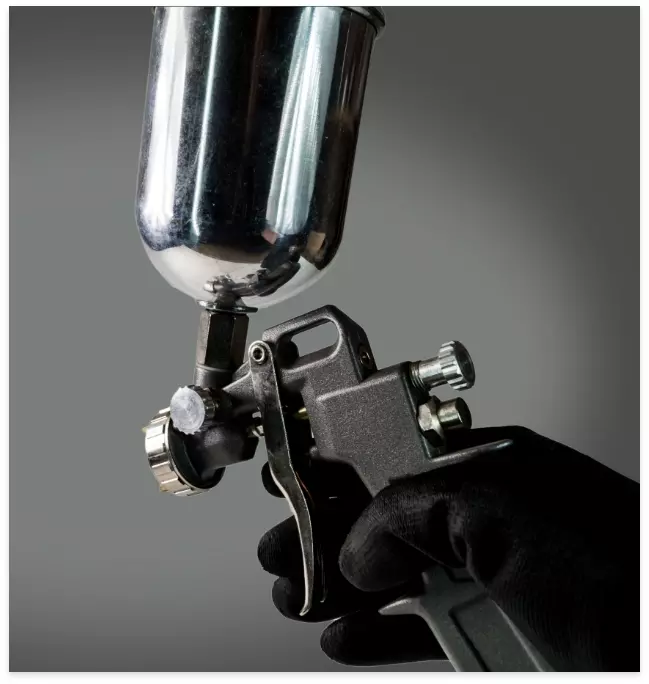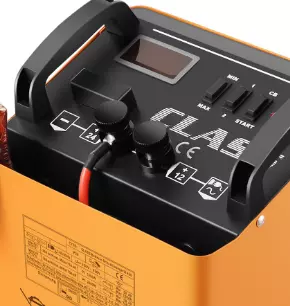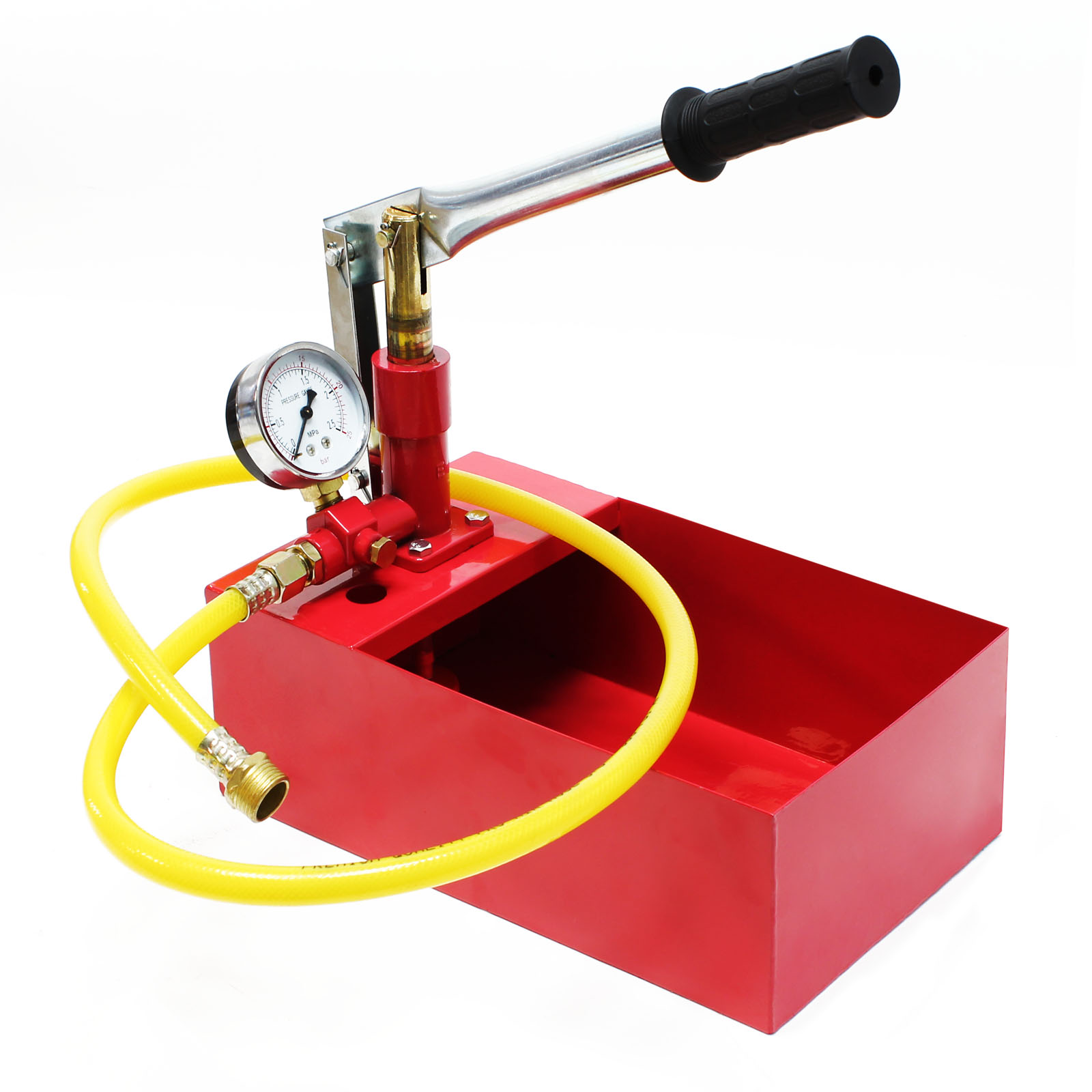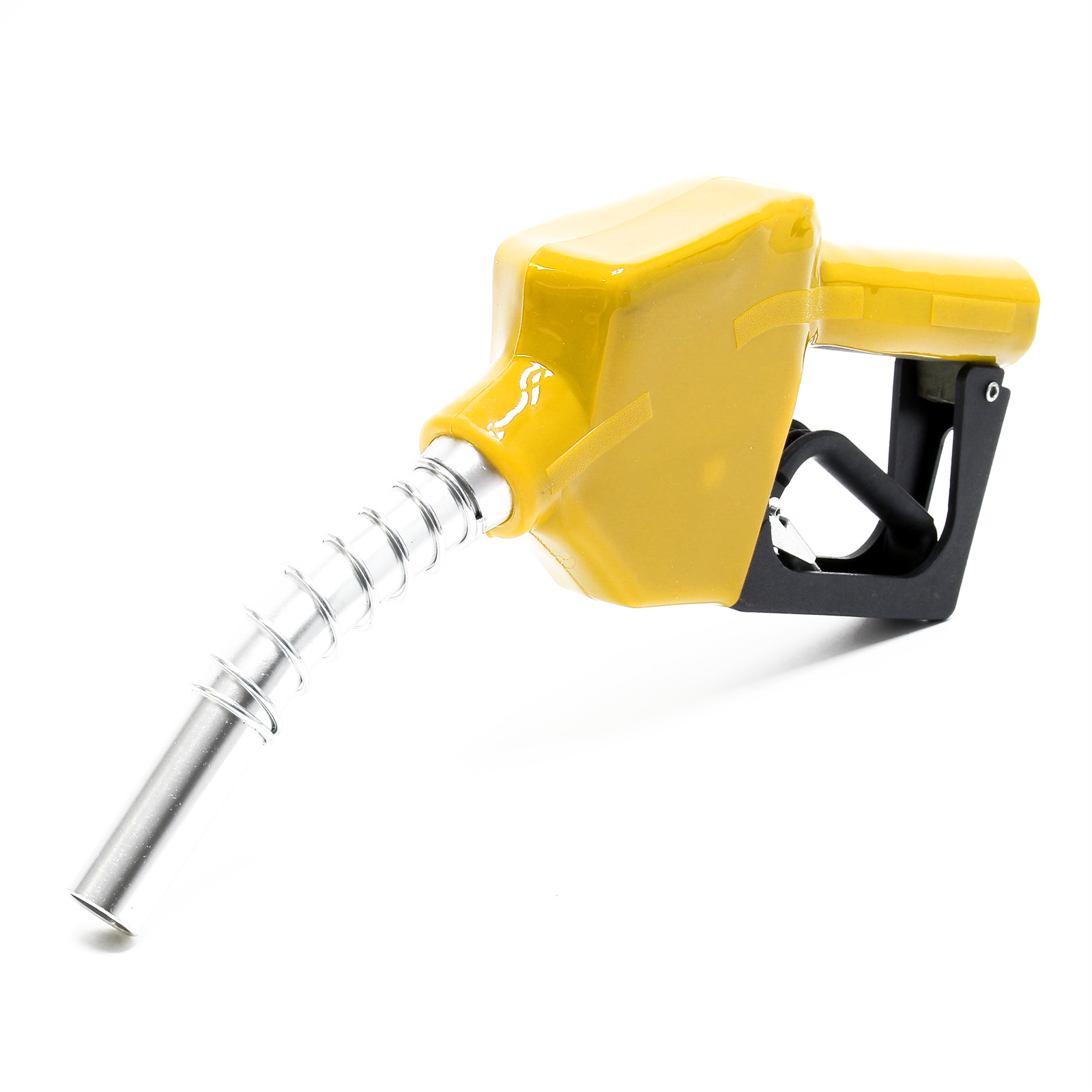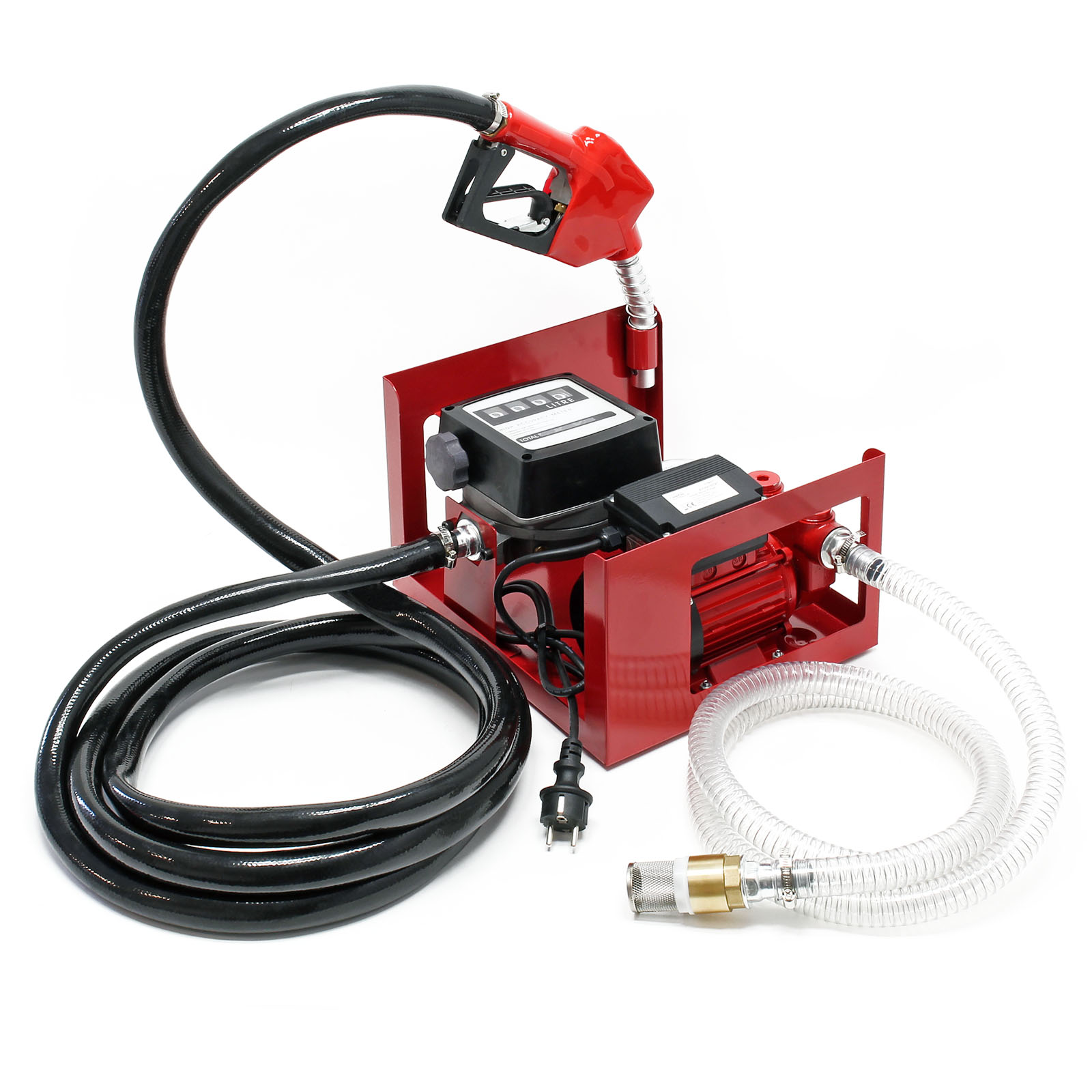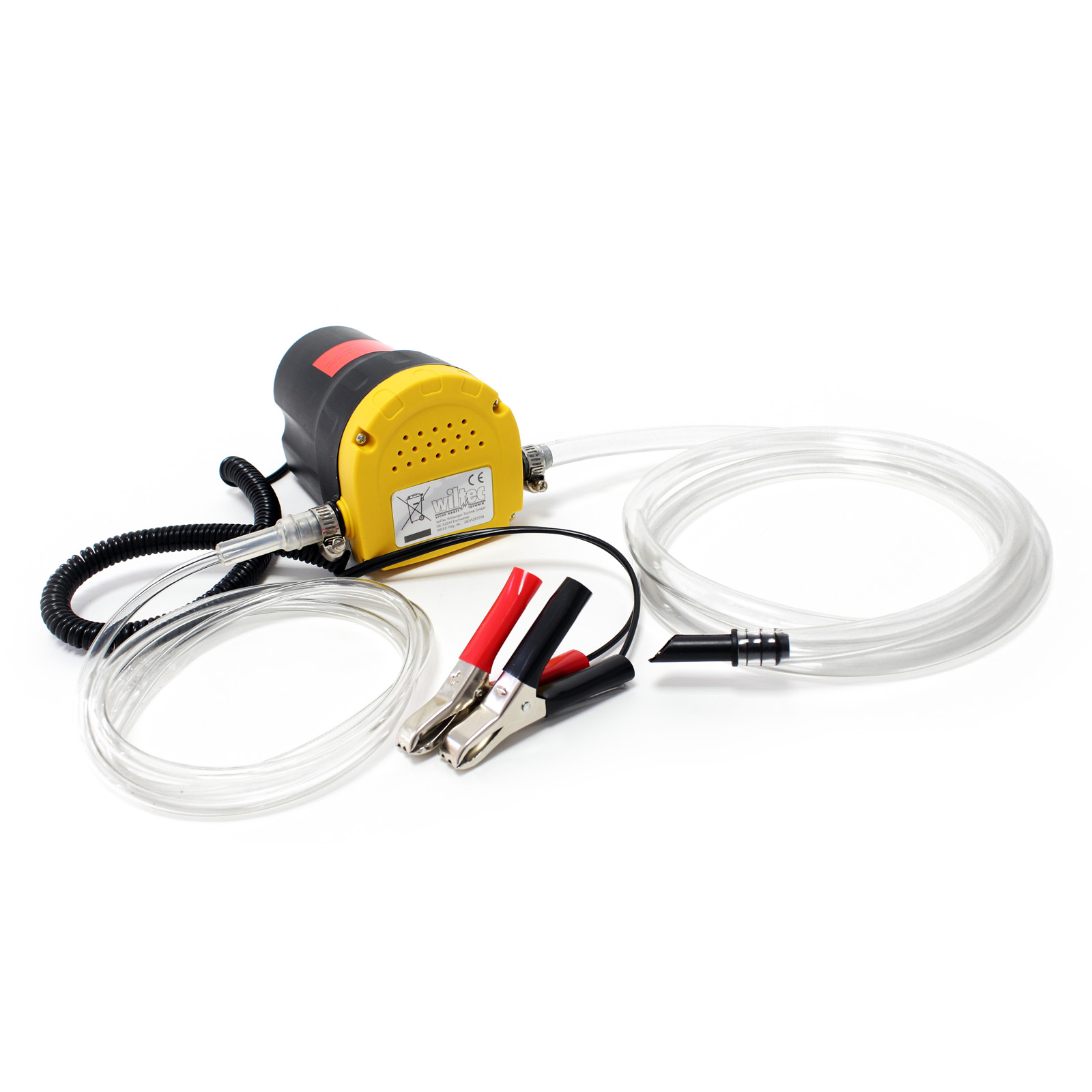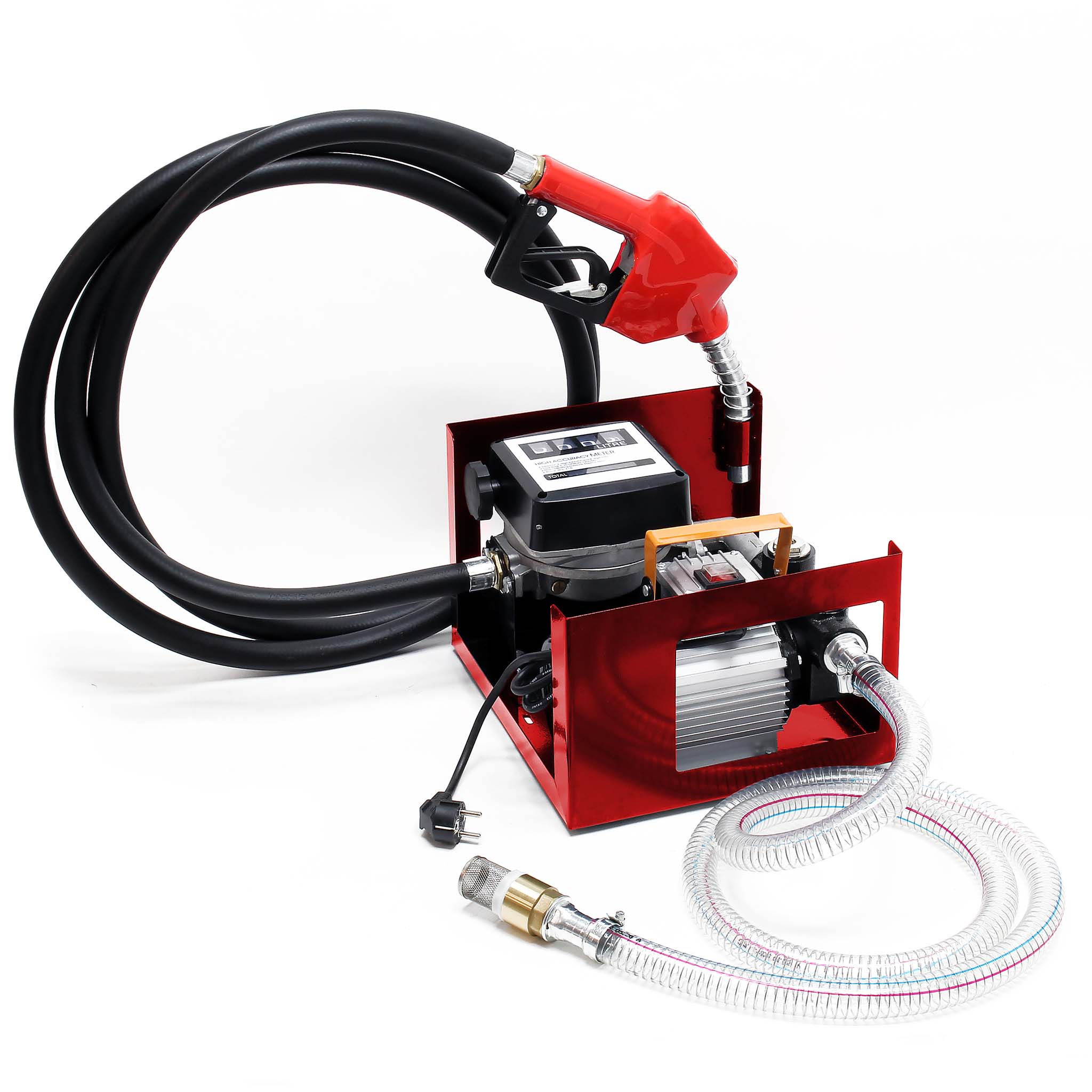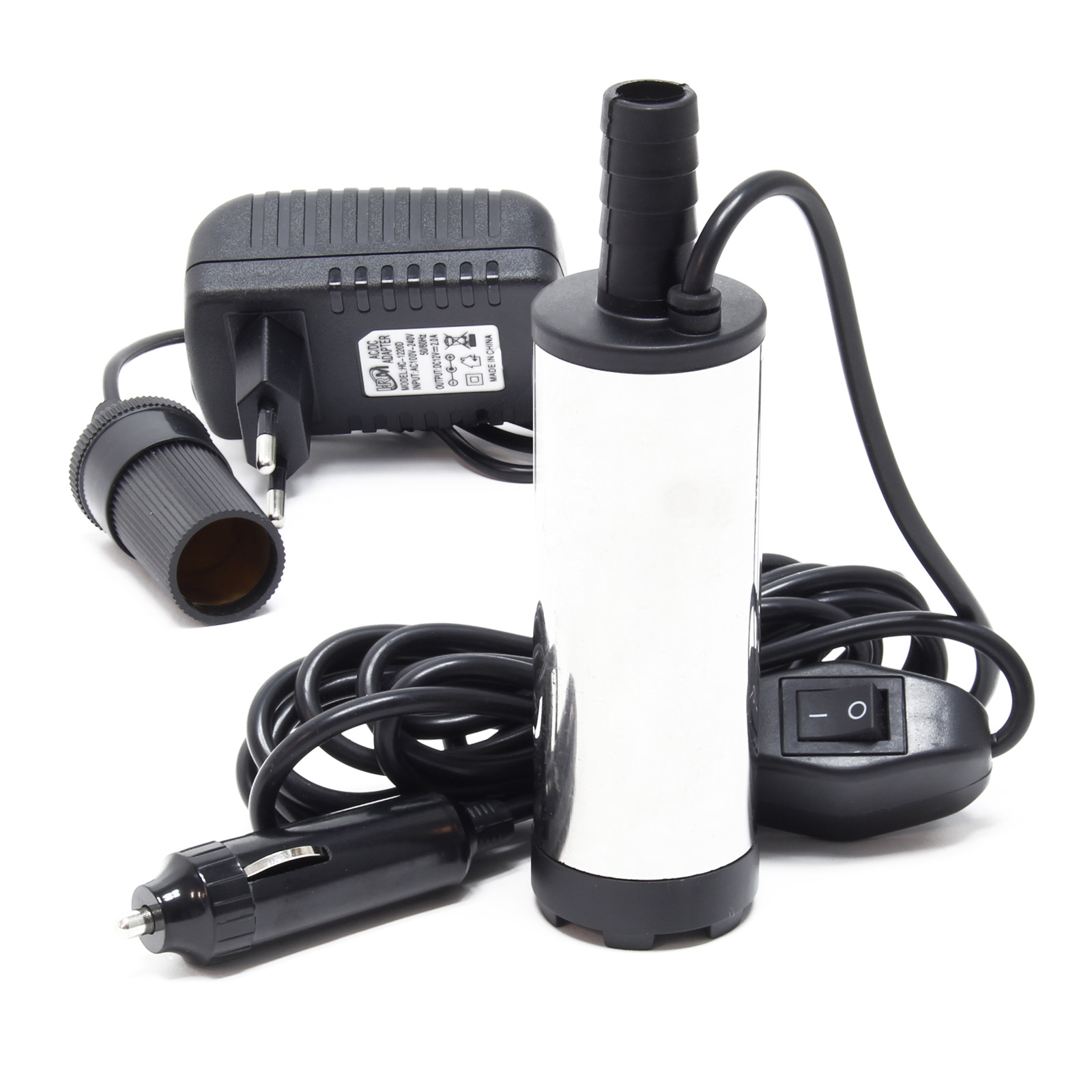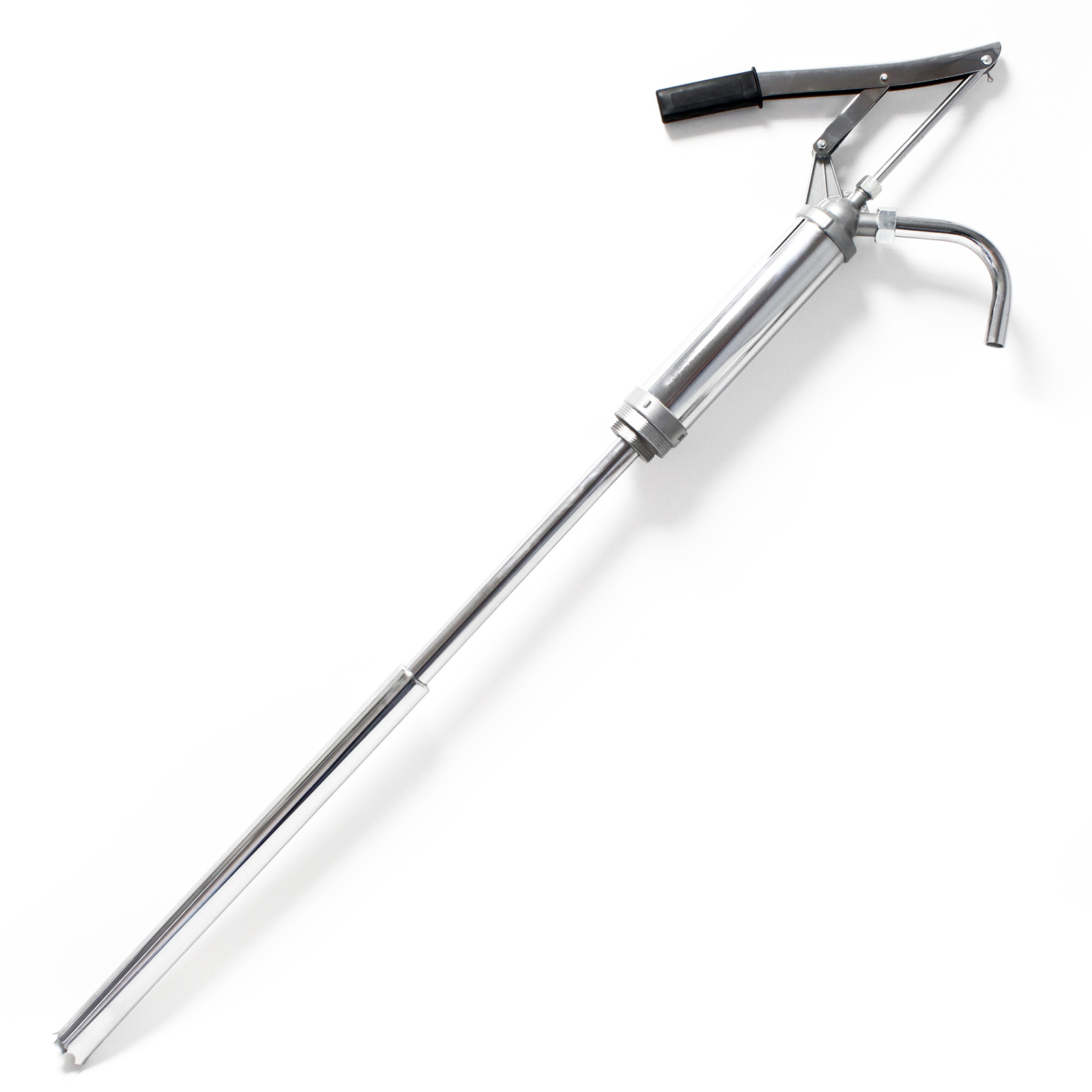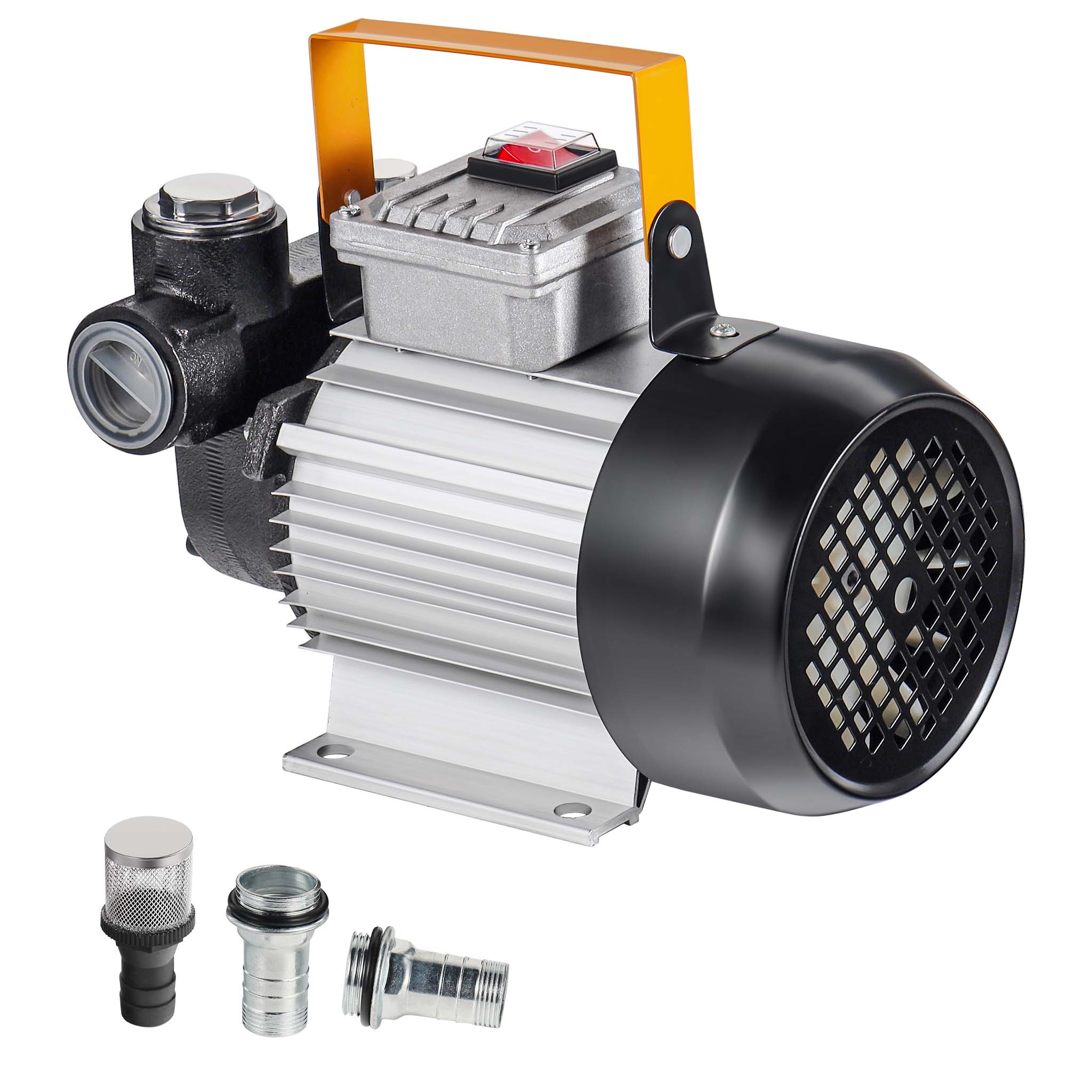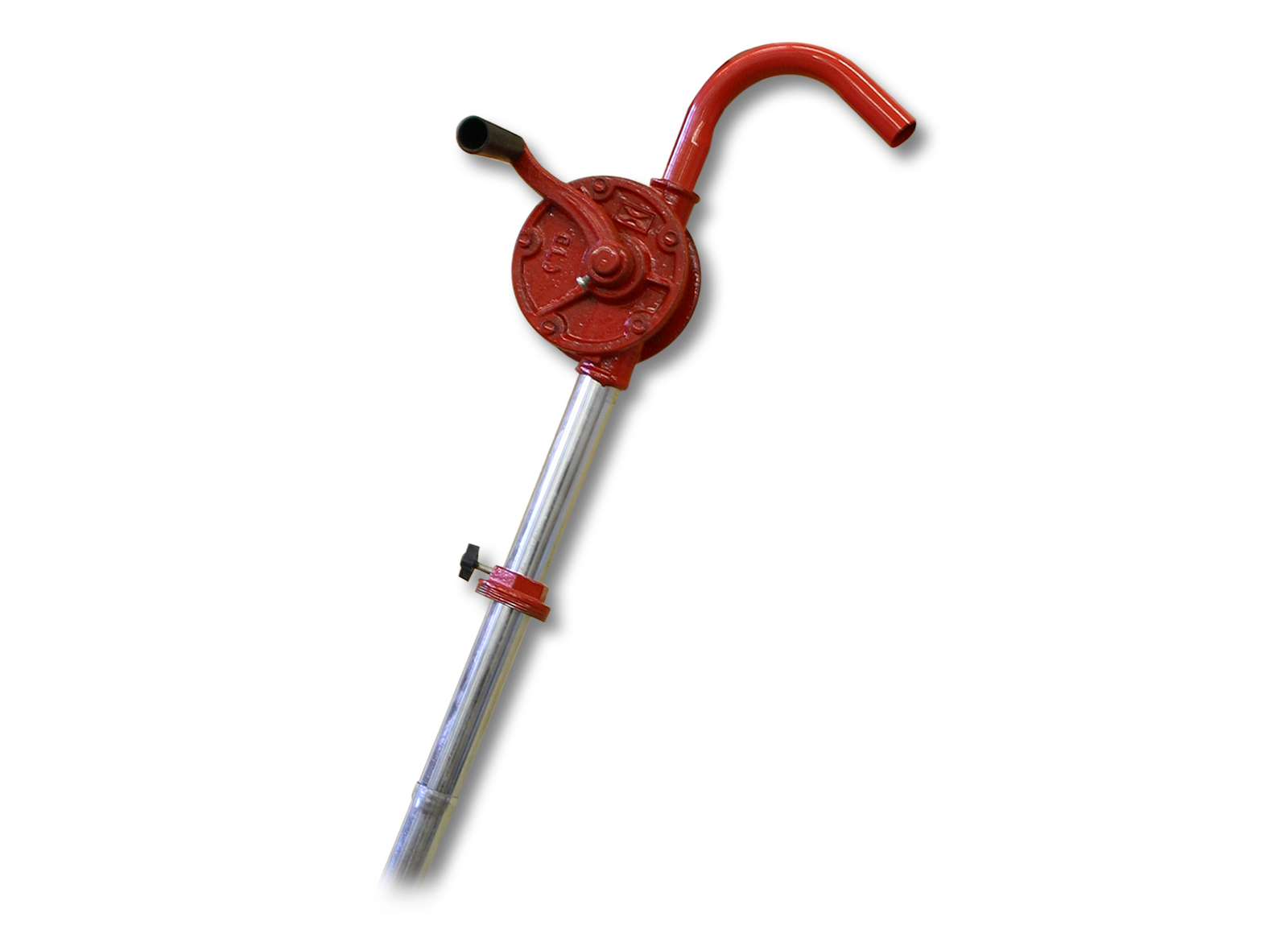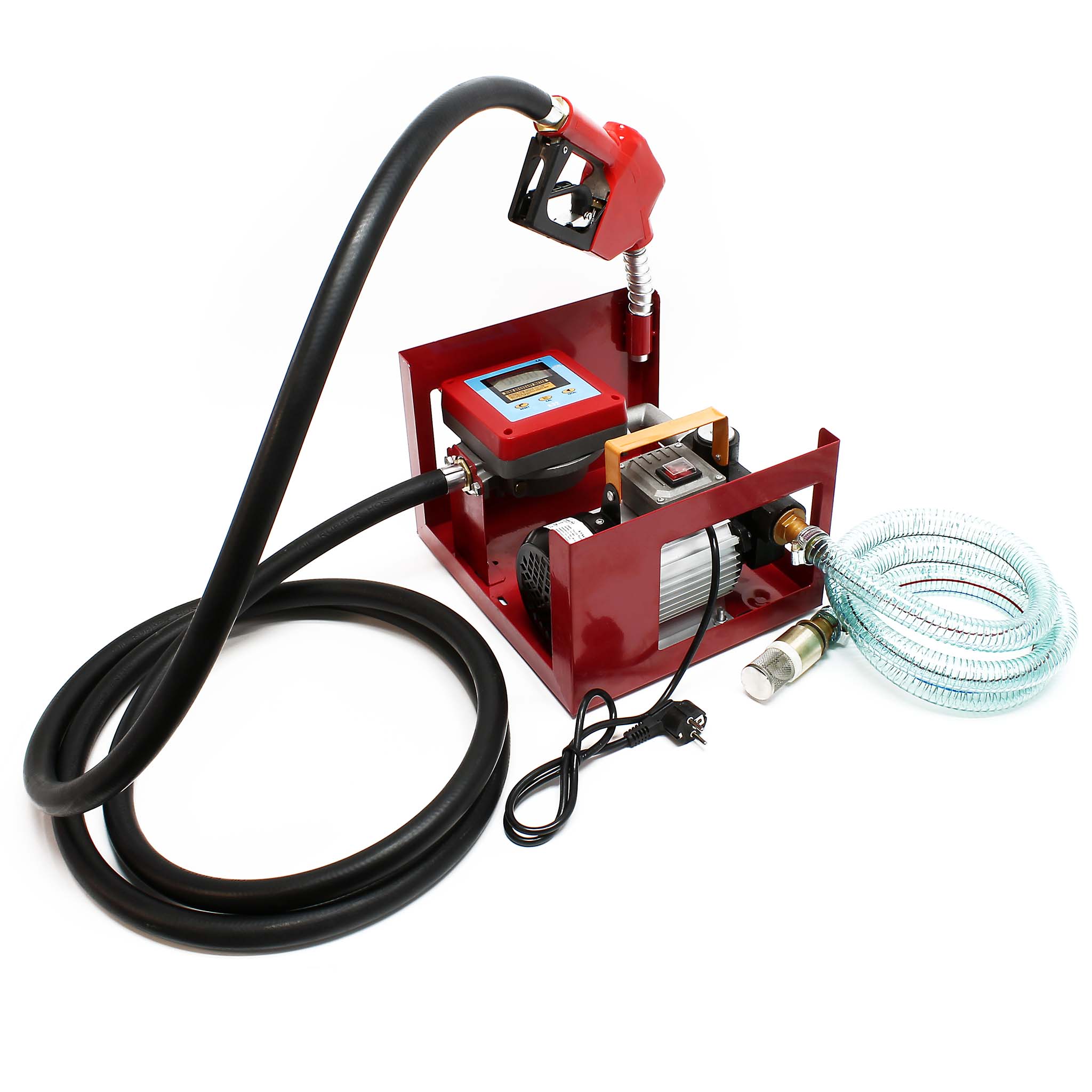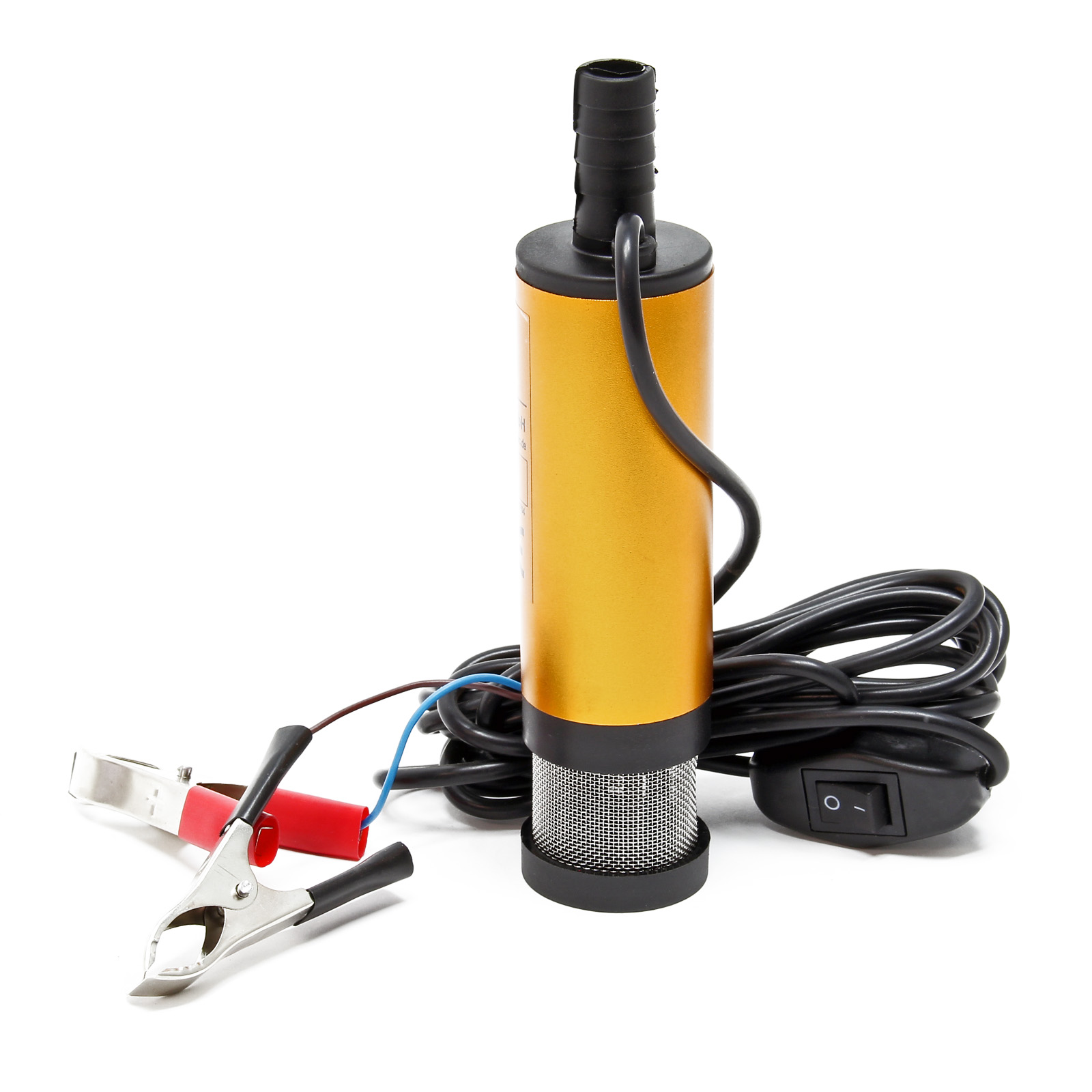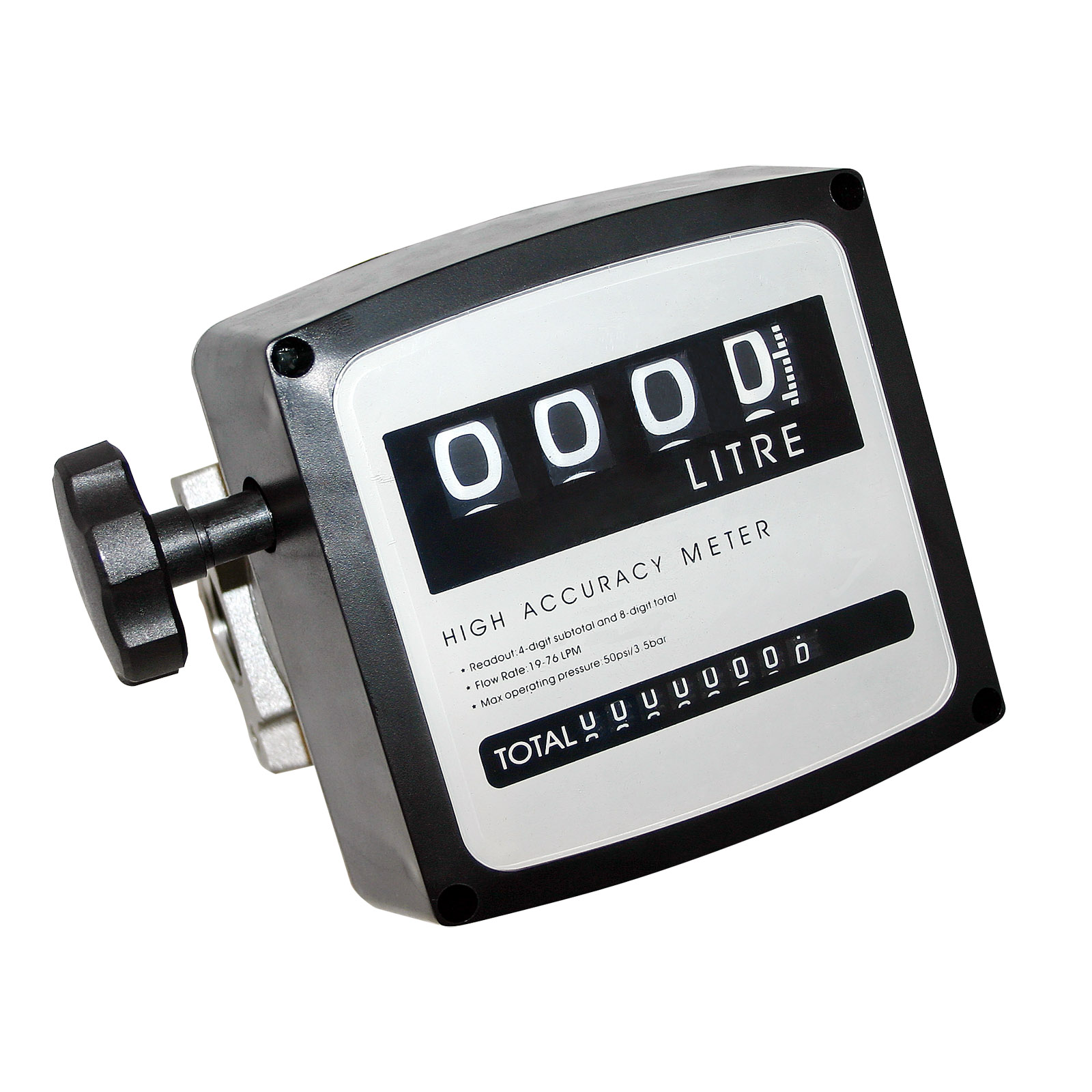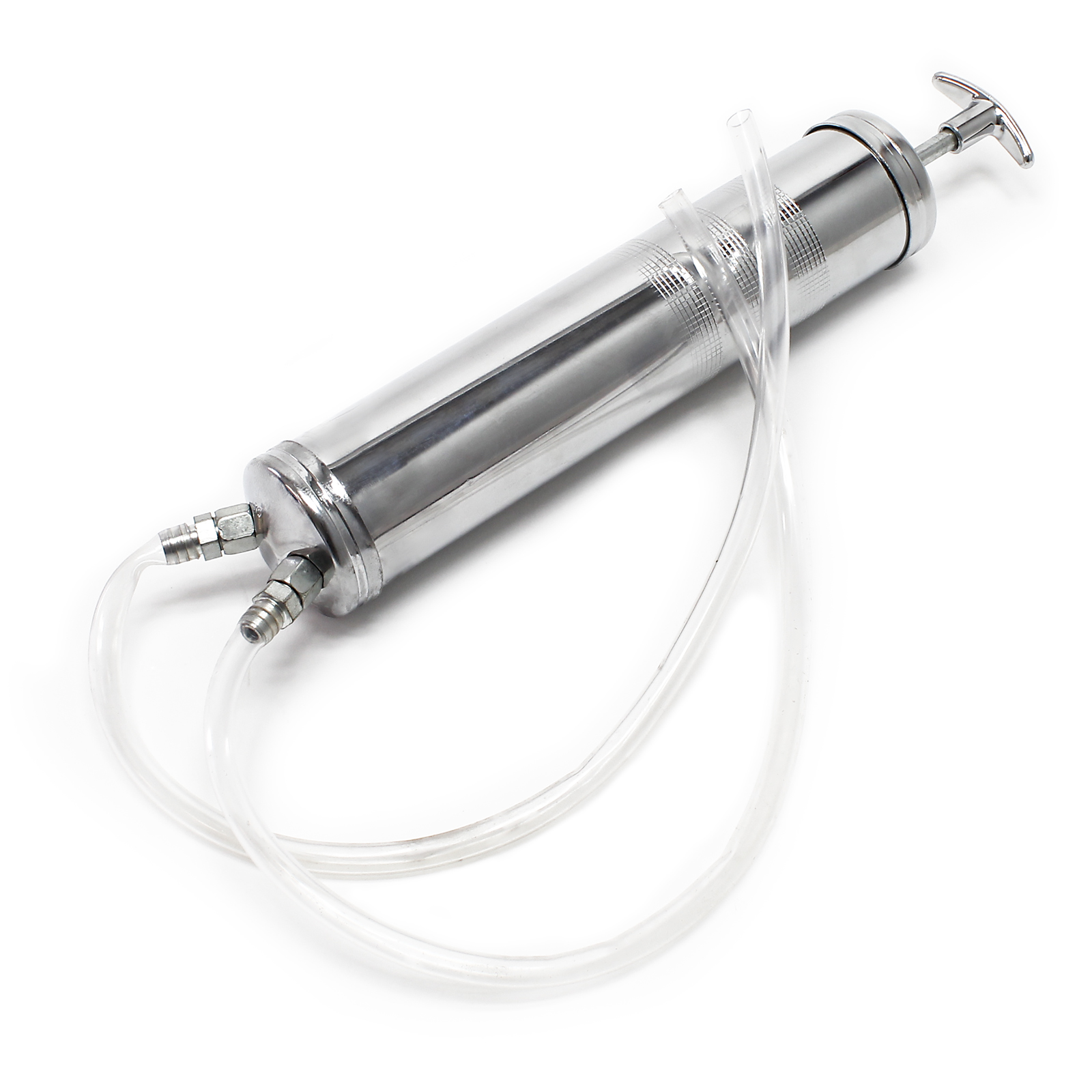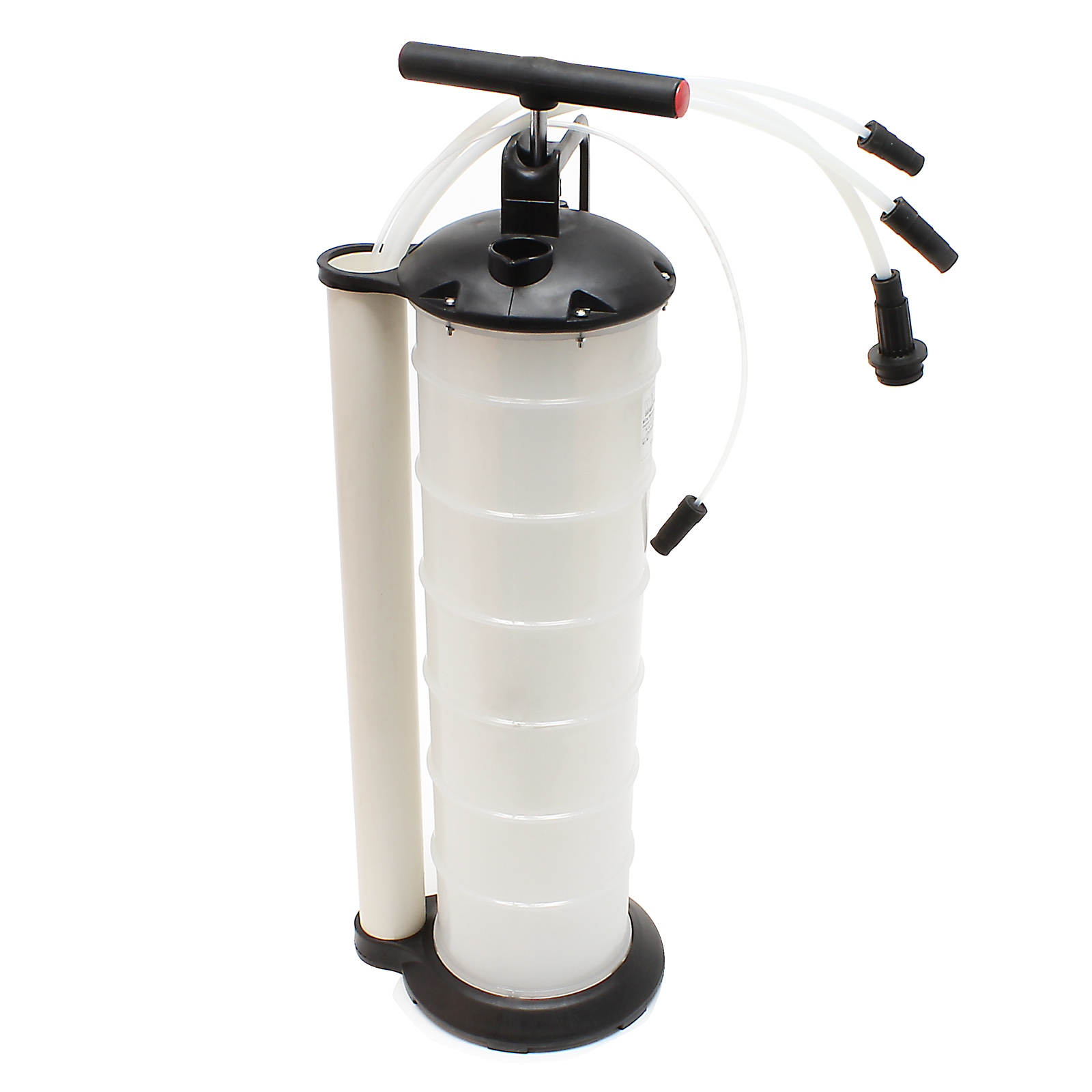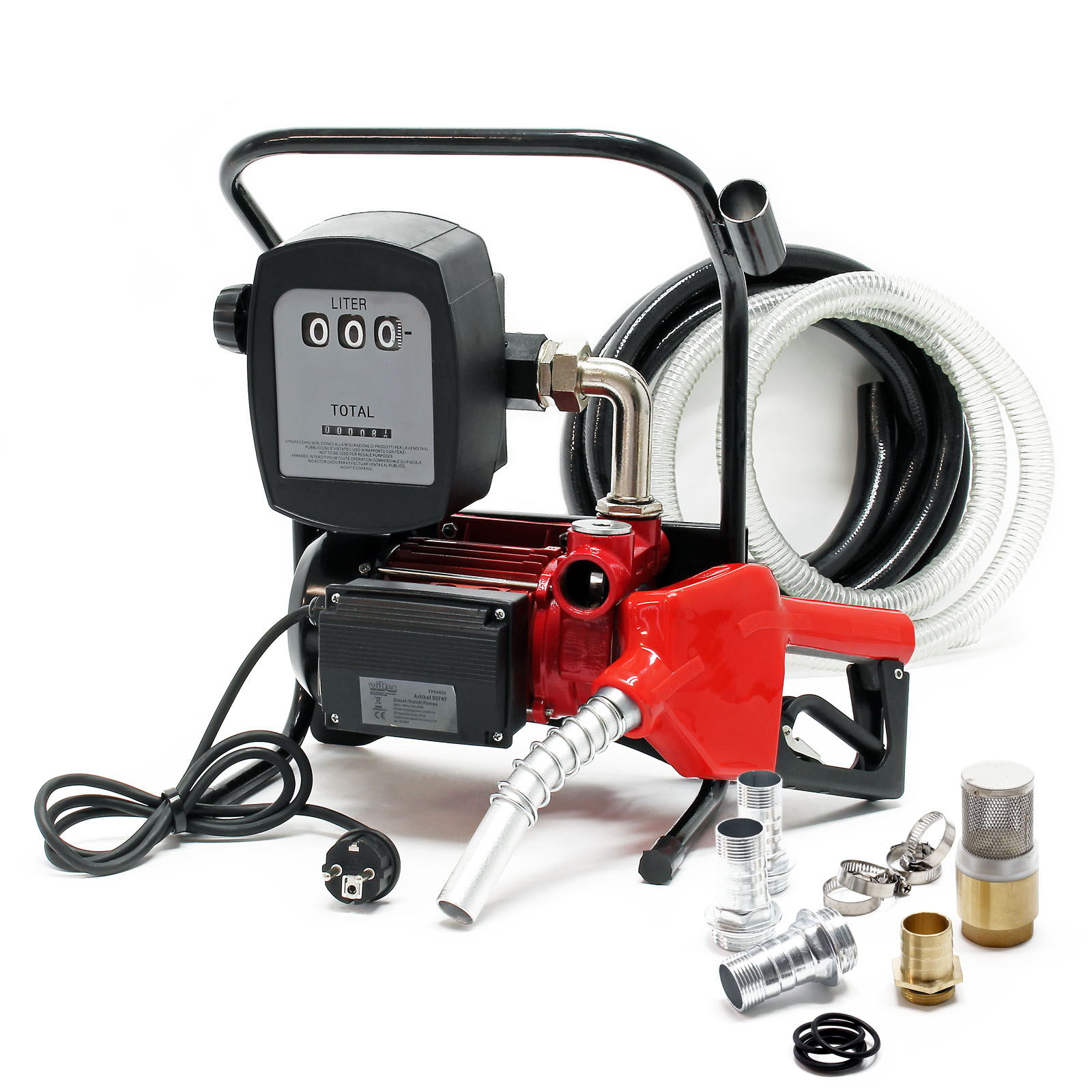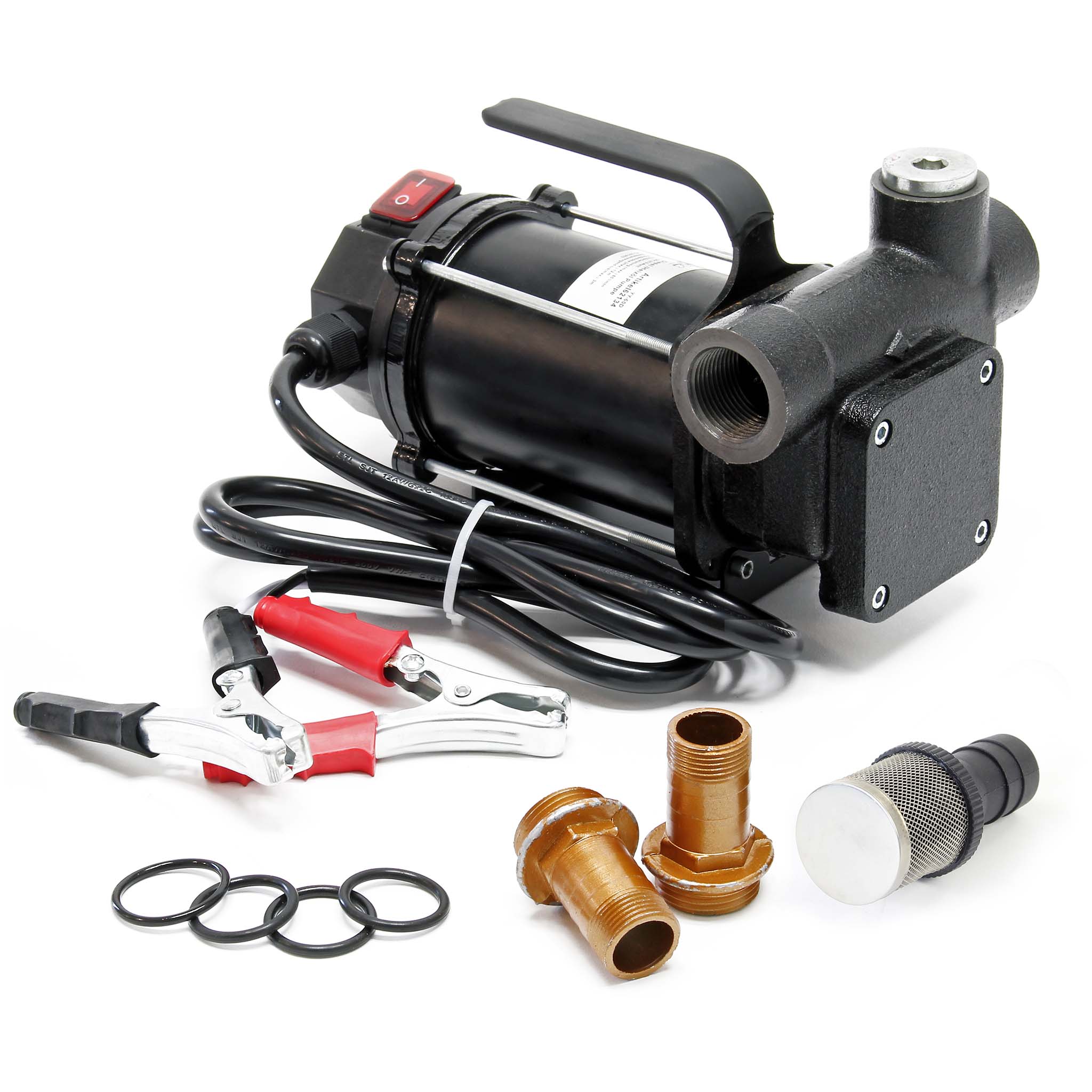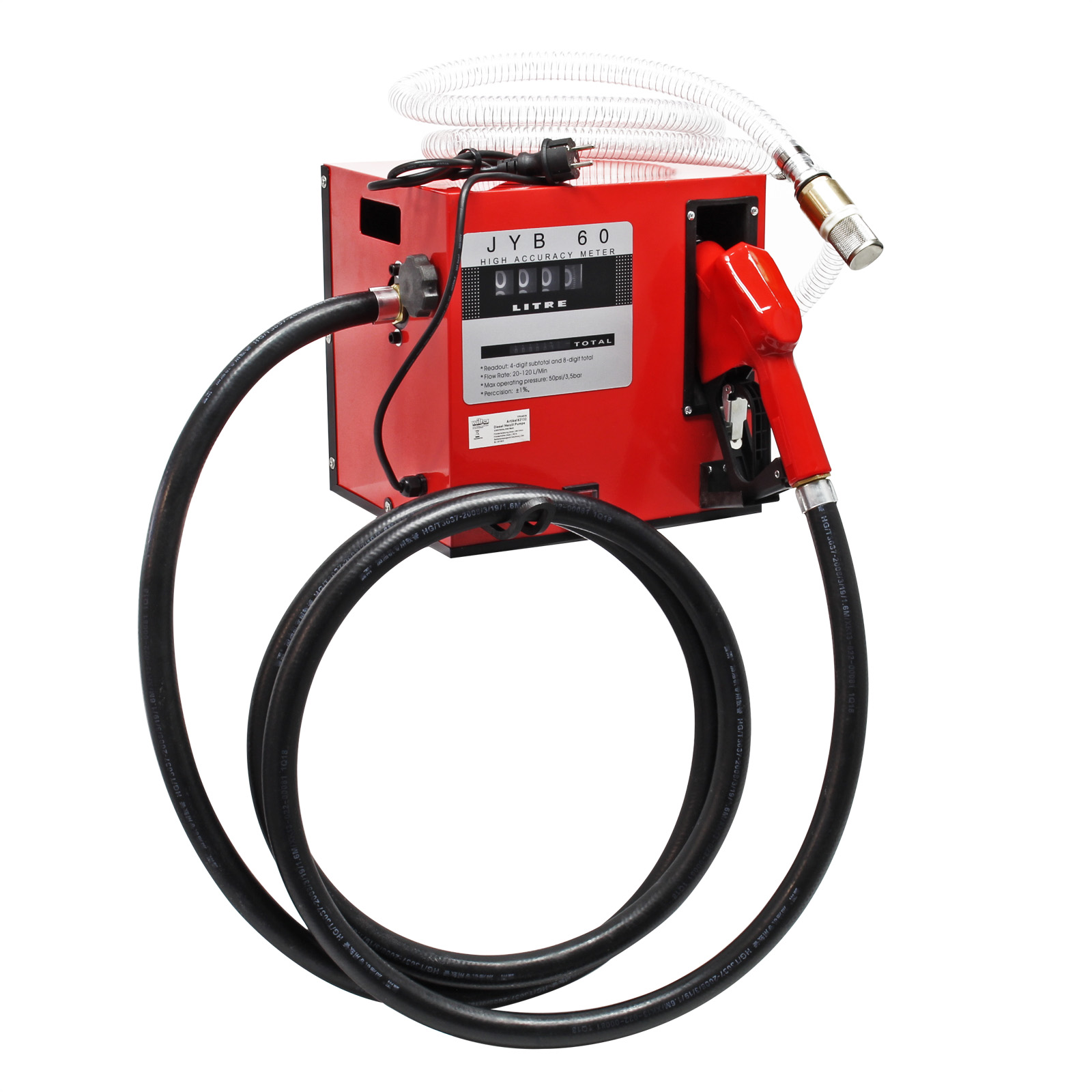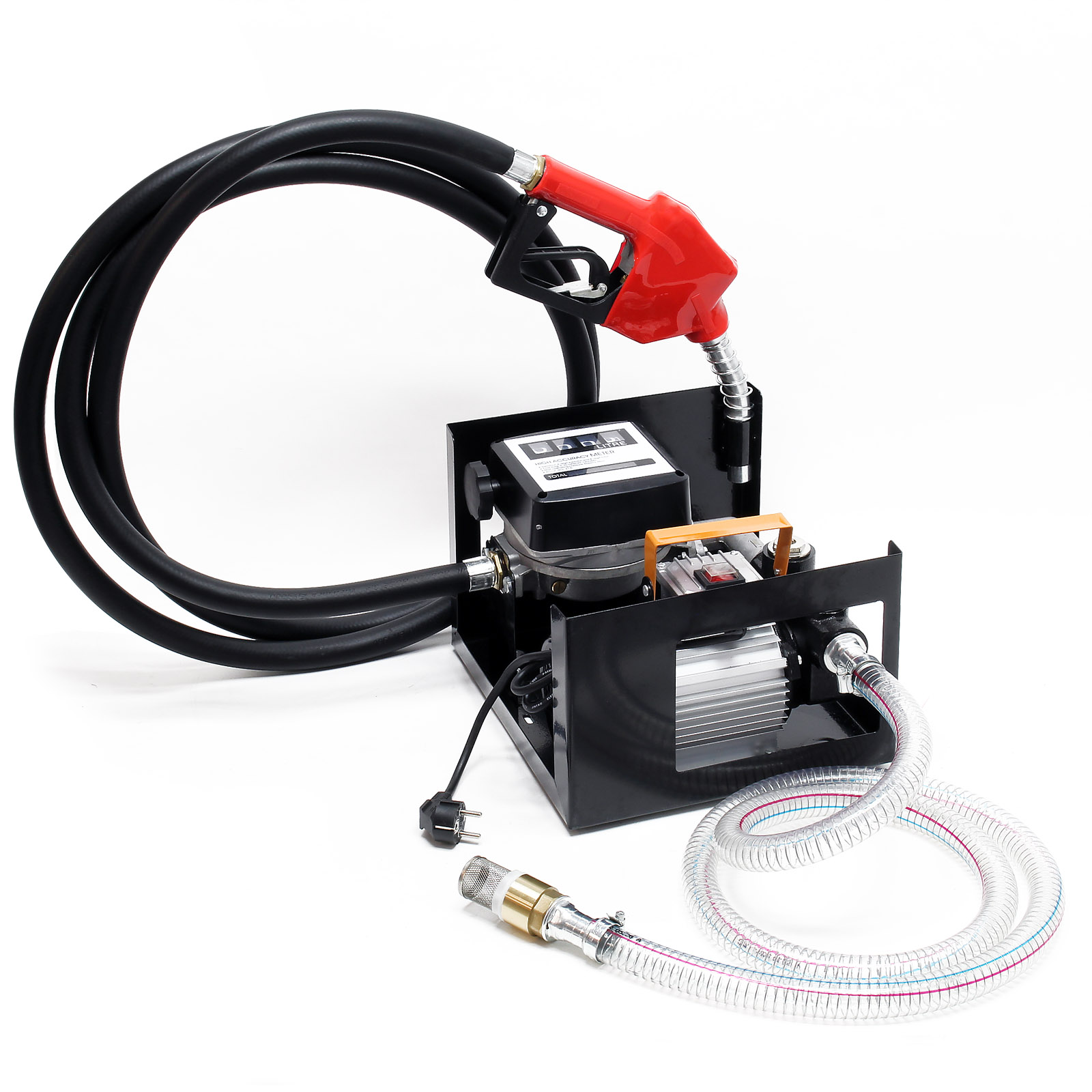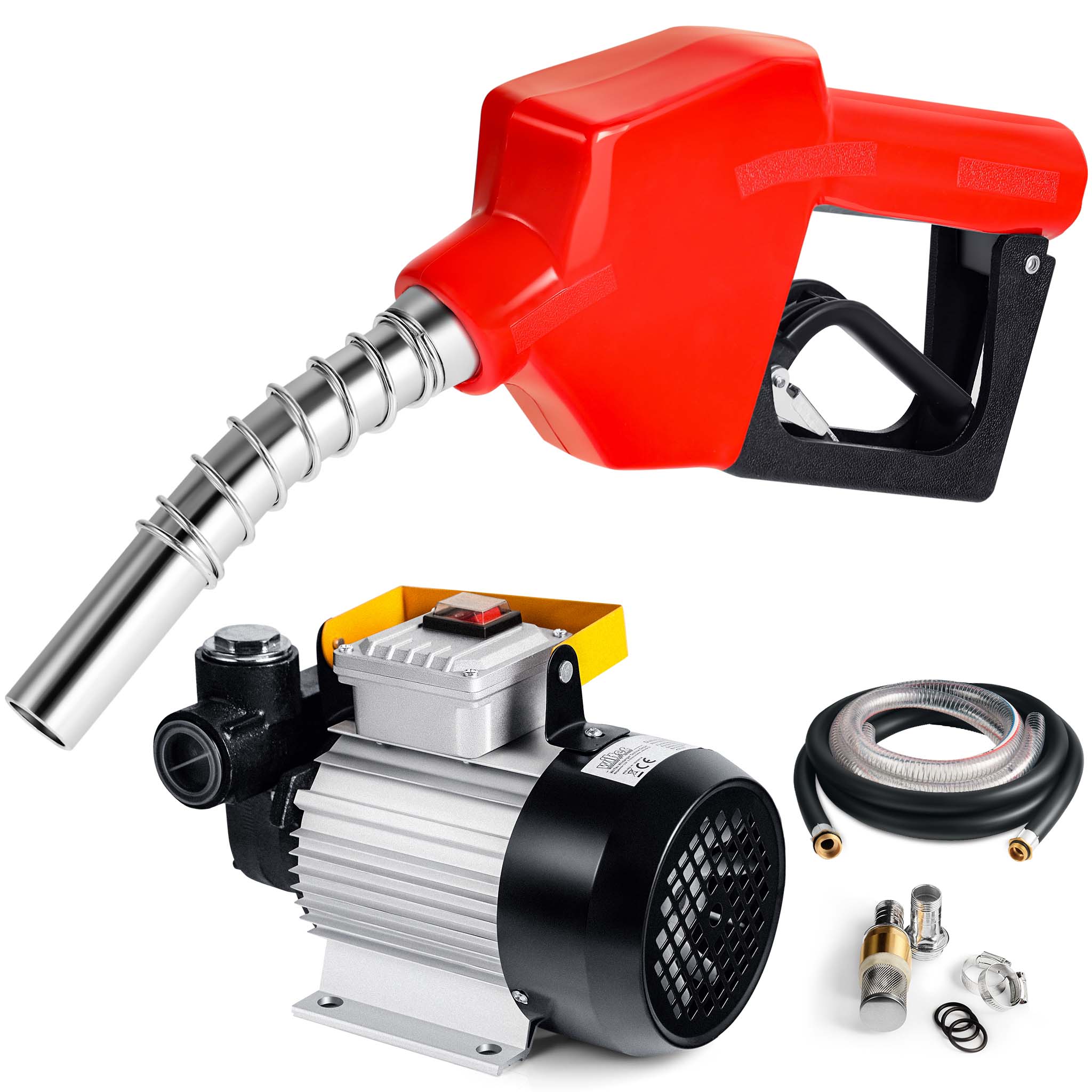Available, delivery time: 2 - 3 days
• About 5 l filling rate
• Pressure tube with ½″ thread
• Test pressure up to 25 bar
• Weight 2 kg
Available, delivery time: 2 - 3 days
• Fuel nozzle for delivery pump
• 3/4 inch, 27mm, 60 l/min
Available, delivery time: 2 - 3 days
• self-priming
• including counter with supporting frame
• By-Pass-Valve prevents overheating
Available, delivery time: 2 - 3 days
• Self-priming
Available, delivery time: 2 - 3 days
• Suction pump for oil in cars
• Oil change on suction probe
Available, delivery time: 2 - 3 days
• self-priming
• including counter with supporting frame
• By-Pass-Valve prevents overheating
Available, delivery time: 2 - 3 days
• Suitable for water and diesel oil
• Flow rate 12 - 15 l/min
• Motor speed 8500 rpm
• Outlet diameter of 38 mm
Available, delivery time: 2 - 3 days
• Lift Distance 5m
• Suction Distance 1,5m
Available, delivery time: 2 - 3 days
• Suitable for Wiltec article 50748
• Suitable for Wiltec article 50591
• Suitable for Wiltec article 50958
• Suitable for Wiltec article 51486
Available, delivery time: 2 - 3 days
• Self priming up to 2 m
• Hose connection 25 mm (1″)
• By-Pass-Valve prevents overheating
Available, delivery time: 2 - 3 days
• Lift Distance 5m
• Suction Distance 1m
Available, delivery time: 2 - 3 days
• Self-priming
• 230 V / 550 W
• 60 l/min
• Metal housing
• Flow meter
• Fuel nozzle
• Hoses
Available, delivery time: 2 - 3 days
• Suitable for water and diesel oil
• Flow rate 12 l/min
• Motor speed 8700 rpm
• Incl. a big intake grille
Available, delivery time: 2 - 3 days
• maximum flow rate volume 19-120 l/min
Available, delivery time: 2 - 3 days
• 230V - 50 Hz / 750 Watt
• Suction lift: 3 m
• Pumping head: 25 m
Available, delivery time: 2 - 3 days
• Universally applicable
• 2 outlets
• Volume: 750 ml
• Long durability
Available, delivery time: 2 - 3 days
• for oil and other liquids
• capacity 7 liters
• inclusive suction hoses
Available, delivery time: 2 - 3 days
• Self-priming
Available, delivery time: 2 - 3 days
• Maximum flow rate volume 10-60 l/min
• Max. 3 bar
• For diesel, rape oil, fuel oil
Available, delivery time: 2 - 3 days
• Self-priming
• Including counter with supporting frame
Available, delivery time: 2 - 3 days
• 12V / 550 Watt
• Suction lift: 3 m
• Inclusive fittings & clamps
Available, delivery time: 2 - 3 days
• 230V - 50 Hz / 550 Watt
• Can be mounted to walls
• With counter mechanism, hose & fittings
• Pump nozzle with automated shutdown function
Available, delivery time: 2 - 3 days
• Self-Priming
• Max. Delivery Height 30m
• By-Pass-Valve prevents overheating
Available, delivery time: 2 - 3 days
• Self-priming
• By-Pass-Valve prevents overheating
Leistungsstarke Dieselpumpen bei Wiltec
Wiltec bietet Ihnen einen faszinierenden Einblick in die Vielfalt moderner Technologien, die das Umpumpen von Diesel zu einer mühelosen Aufgabe machen. Unsere Diesel Fasspumpen setzen Maßstäbe in Sachen Effizienz und Zuverlässigkeit. Lassen Sie sich von der beeindruckenden Leistungsfähigkeit unserer Pumpen für Diesel und deren Vielseitigkeit begeistern.

Funktion und Anwendung von Dieselpumpen
Erfahren Sie mehr über das Pumpensystem sowie über die Funktionsweise und Anwendungsmöglichkeiten leistungsstarker Dieselpumpen, insbesondere im Kontext elektrischer Dieselpumpen und selbstansaugender 230V-Ölpumpen.
Elektrische Dieselpumpen, darunter auch selbstansaugende 230V-Ölpumpen, zeichnen sich durch ihre effiziente Funktionsweise aus. Diese Pumpen nutzen elektrische Energie, um einen Unterdruck zu erzeugen, der es ermöglicht, Dieselkraftstoff effektiv zu fördern. Die Technologie gewährleistet nicht nur eine zuverlässige Förderung, sondern auch eine schnelle und effiziente Handhabung.
Diese Dieselpumpen eignen sich optimal für eine Vielzahl von Anwendungen.
Von der Betankung von Fahrzeugen und Maschinen bis hin zur Übertragung von Diesel aus Lagertanks – ihre Anwendungen sind vielfältig und effektiv. Durch die selbstansaugende Eigenschaft sind sie besonders nützlich in Situationen, in denen eine schnelle und problemlose Inbetriebnahme erforderlich ist.
Die Präzision der Pumpen gewährleistet eine sichere Handhabung von Diesel, sollte jedoch nicht auf andere Flüssigkeiten ausgedehnt werden.
Unsere Dieselpumpen richten sich an eine breite Zielgruppe, darunter professionelle Anwender, Landwirte, Baugewerbe und viele mehr. Jeder, der regelmäßig mit Dieselkraftstoff arbeitet und Wert auf eine effiziente, zuverlässige Förderung legt, wird von den Vorteilen dieser Pumpen profitieren.
Verschiedene Modelle im Überblick
Wiltec bietet eine breite Palette von Modellen, darunter selbstansaugende, ölabsaugende, Bio Dieselpumpen, Heizölpumpen und elektrische Kraftstoffpumpen für Diesel. Diese Vielfalt ermöglicht es Ihnen, die perfekte Pumpe für Ihre spezifischen Bedürfnisse auszuwählen.
Unsere Pumpen überzeugen nicht nur durch ihre unterschiedlichen Funktionsweisen, sondern auch durch ihre hohe Effizienz und Zuverlässigkeit.
Von selbstansaugenden Modellen, die besonders für den schnellen Einsatz geeignet sind, bis hin zu elektrischen Kraftstoffpumpen für Diesel, die eine kontinuierliche und kraftvolle Förderung gewährleisten, bieten wir eine umfassende Auswahl.
Für eine präzise Kontrolle und Abrechnung verfügen einige unserer Modelle über integrierte Zähler. Dieselpumpen mit Zählwerk ermöglichen eine genaue Messung des geförderten Kraftstoffs, was besonders in gewerblichen Anwendungen von Vorteil ist.
Für den sofortigen mobilen Einsatz
Mit unseren selbstansaugenden Dieselpumpen, die mit einer Spannung von 230V betrieben werden, garantieren wir Ihnen eine zuverlässige und sofort einsatzbereite Lösung.
Diese mobilen Dieselpumpen kommen mit Schläuchen und einer Zapfpistole, was einen unkomplizierten und effizienten Einsatz ermöglicht. Egal, ob Sie Diesel direkt von einem Fass oder einem Lagerbehälter fördern möchten, diese Pumpen sind darauf ausgelegt, Ihren Bedürfnissen gerecht zu werden.
Die 230V Dieselpumpen sind speziell für den netzunabhängigen Einsatz konzipiert und können somit an jedem beliebigen Ort genutzt werden. Die Selbstansaugfunktion ermöglicht eine schnelle Inbetriebnahme, ohne dass eine manuelle Befüllung erforderlich ist. Dadurch wird eine mühelose Handhabung gewährleistet, die insbesondere in Situationen, in denen Mobilität entscheidend ist, von unschätzbarem Wert ist.
Um Überfüllungen zu vermeiden, verfügen diese Dieselpumpen über eine vollautomatische Abschaltung. Dies gewährleistet nicht nur einen effizienten Kraftstofftransfer, sondern sorgt auch für die Sicherheit Ihres Equipments.

Auch zur Förderung von Heizöl geeignet
Mit einer Heizölpumpe, die mit einer Spannung von 230V betrieben wird, ermöglichen wir Ihnen eine bequeme und zuverlässige Förderung von Brennstoffen.
Diese Kraftstoffpumpen sind speziell darauf ausgelegt, sowohl Heizöl als auch Diesel effizient zu fördern, was Ihnen eine flexible Nutzung ermöglicht. Durch die Verwendung einer Heizölpumpe wird die Förderung von Heizöl besonders komfortabel und einfach, sowohl für den privaten Gebrauch als auch in professionellen Werkstätten.
Die Heizölpumpen eignen sich nicht nur für den Einsatz in größeren Industrieumgebungen, sondern sind auch optimal für den eigenen Werkstattbetrieb im Haus geeignet. Das 230V-Betriebssystem macht den Einsatz einfach und flexibel, und die robuste Konstruktion gewährleistet eine zuverlässige Leistung über einen langen Zeitraum. Erleichtern Sie sich die Arbeit mit einem Komplettsystem, das nicht nur für die Förderung von Diesel, sondern auch für Heizöl geeignet ist.
Diesel Handpumpen

Unsere Diesel Handpumpen sind praktische und zuverlässige Werkzeuge, um Dieselkraftstoff aus Tanks und Fässern mühelos zu fördern. Diese Art von Pumpen bieten eine effiziente Möglichkeit, Diesel genau dort zu bekommen, wo Sie ihn brauchen – sei es für landwirtschaftliche Maschinen, Traktoren oder andere Fahrzeuge.
Die Funktionsweise einer Diesel Handpumpe ist einfach und effektiv. Durch manuellen Druckaufbau wird der Dieselkraftstoff aus dem Tank oder Fass gesaugt und in den gewünschten Behälter geleitet. Diese Handpumpen dienen nicht nur als nützliche Helfer beim Betanken von Maschinen, sondern bieten auch eine zuverlässige Lösung in Situationen, in denen der Zugang zu elektrischer Energie eingeschränkt ist.
Besonders für landwirtschaftliche Gefährte sind Diesel Handpumpen von großem Interesse. Sie ermöglichen eine unkomplizierte Betankung, unabhängig von der Verfügbarkeit von Stromquellen. Die kompakte Bauweise und die einfache Handhabung machen diese Handpumpen zu unverzichtbaren Begleitern auf dem Feld oder in abgelegenen Gebieten.
Für den Heimgebrauch
Unsere selbstansaugenden Dieselpumpen für den Heimgebrauch sind die praktischen Helfer, die Sie für verschiedene Einsatzzwecke im eigenen Zuhause benötigen. Diese kleinen Dieselpumpen, auch als Dieselpumpe Fasspumpe bekannt, bieten eine unkomplizierte Möglichkeit, Diesel schnell und effizient abzupumpen und für unterschiedliche Geräte zu verwenden.
Diese selbstansaugenden Dieselpumpen sind ideal, um den Kraftstoffbedarf Ihrer Geräte zu Hause zu decken, ohne den Weg zur Tankstelle antreten zu müssen. Egal, ob es darum geht, Rasenmäher, Generatoren oder andere dieselbetriebene Geräte zu betanken – mit diesen Pumpen erledigen Sie dies schnell und unkompliziert direkt in Ihrem eigenen Zuhause.
Die kleinen Dieselpumpen sind so konzipiert, dass sie einfach zu handhaben sind und sich für den Einsatz in unterschiedlichen Umgebungen eignen. Die Selbstansaugfunktion ermöglicht es Ihnen, Diesel aus Fässern oder anderen Behältern abzupumpen und direkt für Ihre Geräte zu verwenden.
Nie war es einfacher, für die Betankung Ihrer Geräte zu Hause zu sorgen. Mit unseren Dieselpumpen für den Heimgebrauch sparen Sie nicht nur Zeit, sondern profitieren auch von der Bequemlichkeit, Diesel genau dort zu haben, wo Sie ihn benötigen.

Zusammenfassung
Egal ob Sie nach einer Dieselpumpe mit Zapfpistole suchen oder ein komplettes Pumpsystem kaufen möchten, wir bieten verschiedene Modelle, die höchste Ansprüche erfüllen.
Unsere leistungsstarken Dieselpumpen sind darauf ausgelegt, Diesel effizient zu fördern und sind in verschiedenen Ausführungen erhältlich, darunter selbstansaugende Modelle, elektrische Kraftstoffpumpen und Handpumpen.
Diese Pumpen sind nicht nur vielseitig einsetzbar, sondern auch zuverlässige Begleiter in verschiedenen Anwendungsbereichen.
Das breite Spektrum an Dieselpumpen mit Zapfpistole ermöglicht eine präzise Dosierung und einfache Handhabung, ideal für den sofortigen mobilen Einsatz. Unser Sortiment umfasst auch spezialisierte Pumpen für Heizöl, perfekt für den Einsatz in Werkstätten oder zu Hause. Alle unsere Dieselpumpen und Pumpsysteme können bequem online erworben werden.













